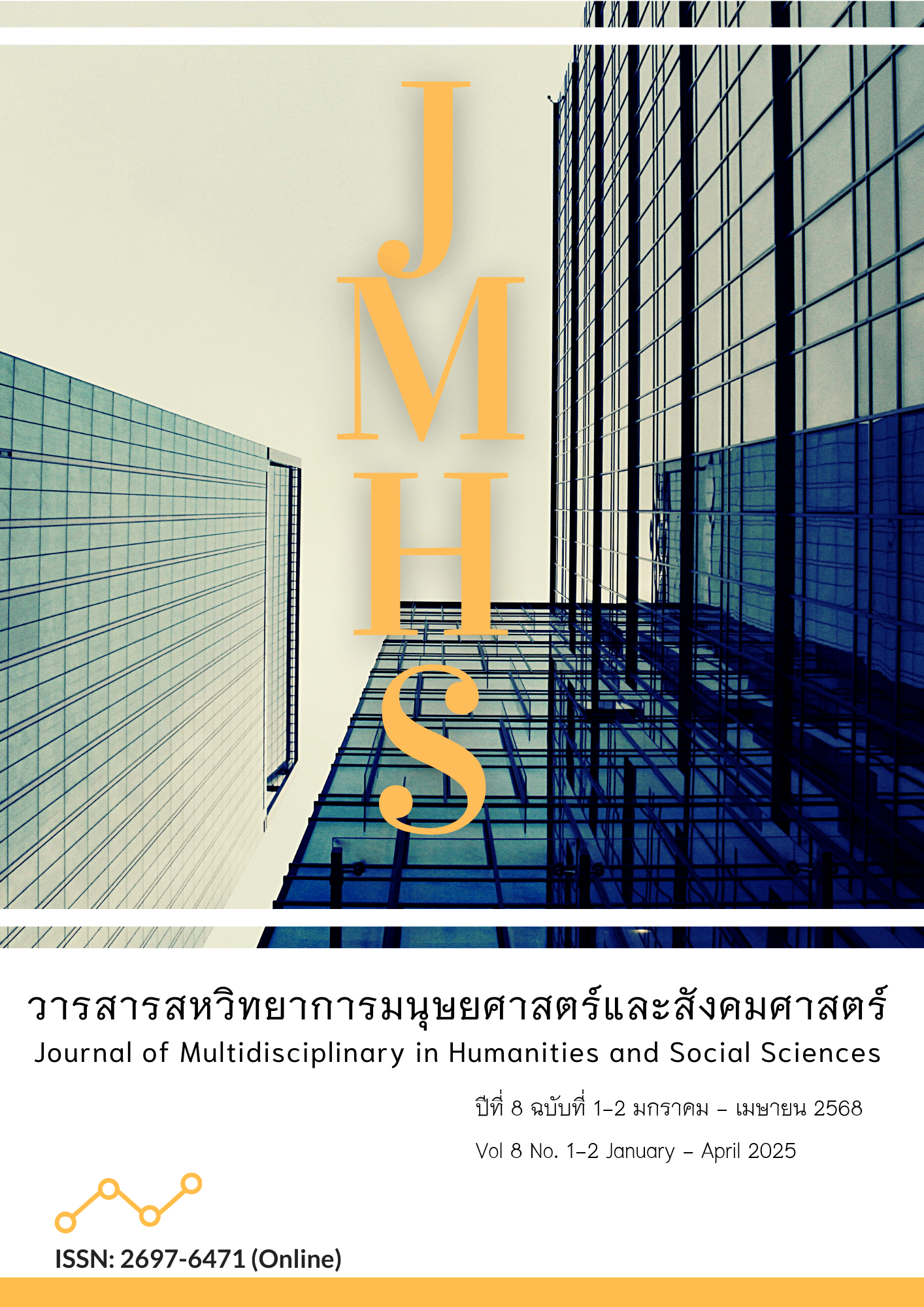Enhancing Curriculum Development Education Through Digital Technology Integration: A Mixed-Methods Study of Undergraduate Teacher Preparation in Thailand
Main Article Content
บทคัดย่อ
This study investigates the effectiveness of digital technology integration in teaching curriculum development to undergraduate education students in Thailand. The objectives were to: (1) assess the impact of digital tools on student engagement and understanding of curriculum concepts; (2) examine the development of practical curriculum design skills through technology-mediated activities; and (3) identify challenges and enabling factors in implementing technology-enhanced approaches. Using a mixed-methods approach, we conducted a quasi-experimental study with 150 undergraduate students (75 in experimental and 75 in control groups) and 10 instructors at a public university during the 2022-2023 academic year. Data collection involved pre-post surveys, academic performance assessments, semi-structured interviews, and focus group discussions. The results revealed that students in the technology-enhanced group demonstrated significantly higher engagement scores (4.32 vs 3.78, p<.001) and superior performance in applying theoretical concepts to practical design tasks compared to the control group. The integration of learning management systems, collaborative platforms, and virtual reality simulations particularly enhanced visualization of abstract concepts and facilitated authentic application experiences. Key challenges included technical infrastructure limitations and varying levels of digital literacy among participants. This research provides evidence-based strategies for effective technology integration in curriculum development education and contributes to bridging the theory-practice gap in teacher preparation programs. The findings offer practical implications for curriculum designers, teacher educators, and educational policymakers seeking to enhance the digital transformation of teacher education.
Article Details

อนุญาตภายใต้เงื่อนไข Creative Commons Attribution-NonCommercial-NoDerivatives 4.0 International License.
ทัศนะและความคิดเห็นที่ปรากฏในวารสาร ถือเป็นความรับผิดชอบของผู้เขียนบทความนั้น และไม่ถือเป็นทัศนะและความรับผิดชอบของกองบรรณาธิการ
เอกสารอ้างอิง
Brown, A. A., & Green, T. D. (2018). The essentials of instructional design: connecting fundamental principles with process and practice. London: Routledge.
Davis, E. A., & Varma, K. (2008). Supporting teachers in productive adaptation. In Y. Kali, M. C. Linn, & J. E. Roseman (Eds.), Designing coherent science education (pp. 94-122). New York: Teachers College Press.
Johnson, L., Adams Becker, S., Cummins, M., Estrada, V., Freeman, A., & Hall, C. (2016). NMC horizon report: 2016 higher education edition. The New Media Consortium. https://library.educause.edu/resources/2016/2/2016-horizon-report
Lee, J., Lim, C., & Kim, H. (2020). Development of an instructional design model for flipped learning in higher education. Educational Technology Research and Development, 68(3), 1017-1047. https://doi.org/10.1007/s11423-019-09718-8
Liu, Q., & Geertshuis, S. (2021). Professional learning for technology integration in higher education: a social network analysis perspective. British Journal of Educational Technology, 52(1), 199-219. https://doi.org/10.1111/bjet.12957
Mishra, P., & Koehler, M. J. (2006). Technological pedagogical content knowledge: a framework for teacher knowledge. Teachers College Record, 108(6), 1017-1054. https://doi.org/10.1111/j.1467-9620.2006.00684.x
Ornstein, A. C., & Hunkins, F. P. (2018). Curriculum: foundations, principles, and issues. (7th ed.). London: Pearson.
Rodriguez, G., Díez, J., Pérez, N., Baños, J. E., & Carrió, M. (2020). Flipped classroom: fostering creative skills in undergraduate students of health sciences. Thinking Skills and Creativity, 36, 100666. https://doi.org/10.1016/j.tsc.2020.100666
Selwyn, N. (2016). Education and technology: key issues and debates. London: Bloomsbury Academic.
Smith, K., & Johnson, P. (2019). The use of digital technologies in teacher education: a systematic review. Journal of Digital Learning in Teacher Education, 35(2), 105-123. https://doi.org/10.1080/21532974.2019.1568325
Thompson, R. (2021). Enhancing student engagement through technology-mediated learning activities in higher education. Journal of Educational Technology Systems, 49(3), 327-351. https://doi.org/10.1177/0047239520962219
Tondeur, J., Scherer, R., Siddiq, F., & Baran, E. (2017). a comprehensive investigation of TPACK within pre-service teachers’ ICT profiles: mind the gap!. Australasian Journal of Educational Technology, 33(3), 46-60. https://doi.org/10.14742/ajet.3505
Tyler, R. W. (2013). Basic principles of curriculum and instruction. Illinois: University of Chicago Press.
Wang, L., & Teng, M. F. (2019). Integrating technology in ESL curriculum design: a constructivist approach. In J. Keengwe & R. Byamukama (Eds.), Handbook of research on curriculum design and applications in K-20 education (pp. 193-213). IGI Global. https://doi.org/10.4018/978-1-7998-1204-6.ch011


